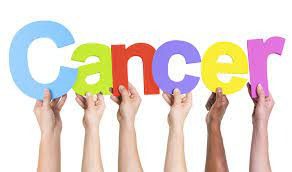For female cancer survivors seeking reproductive therapy, dietary guidance might be beneficial
A young woman’s chance of not becoming pregnant increases after being told she has cancer. Over 90% of young adult cancer survivors do not adhere to the dietary recommendations and have diets that are high in fat and low in fruit and vegetables, despite the fact that eating a healthy diet, which includes whole grains, fruits, and vegetables, as well as healthy fatty acids, has been found to improve fertility and cancer survivorship.

Researchers from Drexel University’s College of Nursing and Health Professions looked at the obstacles to and methods for promoting good eating habits among female cancer survivors who are having problems conceiving.
Researchers recently conducted in-depth interviews with young, female cancer survivors who had difficulty conceiving in order to learn more about their nutritional consumption and provide guidance for the creation of dietary therapies for this group. The results of these interviews were recently published in Integrative Cancer Therapies.
It is obvious that these young ladies face obstacles in their attempts to follow good eating advice. Yet, to date, no research has examined nutrition-related obstacles for female cancer survivors who are having trouble becoming pregnant, according to Brandy-Joe Milliron, PhD, an associate professor at the College and the paper’s corresponding author.
To assess the quality of their diets based on the Healthy Eating Index (2015) and how closely they adhered to the Dietary Guidelines for Americans, 20 female cancer survivors of reproductive age also completed three 24-hour dietary recalls, which involved recalling the food and beverages they had the day before. To make sure the interpretations and viewpoints of participants in focus group talks were correct, the researchers followed up with a few of the individuals.
In general, research participants’ diets were of poor quality, and the data revealed four major obstacles to following a healthy diet: Work-life balance issues, treatment-related exhaustion, and dietary advice that was offered but was too strict for them to follow.Lack of dietary resources and inadequate advice catered to their particular requirements both during treatment and after it has ended
Despite these obstacles, the study’s authors did find a number of supportive factors for healthy eating, particularly among those who consumed higher-quality diets. These included fostering a relationship of trust between patients and their healthcare practitioner, recognizing a high level of incentive to change one’s behavior when it comes to nutrition, and recognizing the extra advantages of good nutrition and a balanced diet.
The research team acknowledged that the results are not generalizable and recommended that future studies continue to look into and explore the particular nutritional and wellness needs of young female cancer survivors from various racial and ethnic backgrounds, with varying levels of education and socioeconomic status, as well as those who have undergone various cancer types and treatments.
They advise the use of evidence-based techniques and tools, such as motivational interviewing, self-monitoring, and social support, in nutrition programs and treatments for female cancer survivors. Customized treatments should take into account women’s work schedules to increase adherence, and tools for culinary instruction may aid survivors’ motivation, confidence while cooking, and fatigue management.
“Nutrition interventions that seek to strengthen fertility treatment can be optimized by considering and addressing barriers and facilitators during the development stage,” said Milliron.







